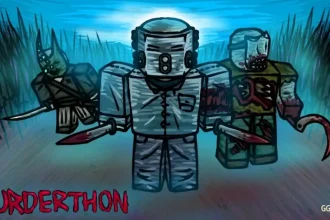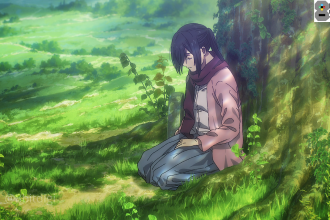
So a while back, in the comment section of one of these columns, a commenter noted that at the end of patch 7.3 in Final Fantasy XIV the Warrior of Light does not actually prove Calyx’s philosophy incorrect. He loses against us, sure, but he doesn’t lose after we systematically tear apart his basic philosophical approach or explain why his way of thinking about human life is reductive. He just comes out and states his philosophy, and then he gets bodied.
This is true. Like, objectively, that simply describes what happens in the main scenario. Calyx proposes what he believes to be true, we fight the thing he summons, and then he loses the fight. I do not think this is an incorrect description of events. What I disagree with is the idea that this is somehow a less satisfying course of events than anything else… a point that is particularly relevant when you consider that none of the villains in Dawntrail get any kind of philosophical rebuttal. And that’s actually just fine.
Let’s take a step back. As an aggregate, JRPGs as a whole and Final Fantasy games in particular love having villains who don’t just have evil plans but have an entire ethos behind their actions. It’s not universal, of course, and there are plenty of games where your opponent is Evilsauce the Evilest Evil of Grand Evil Dimension (if you’ve played Phantasy Star IV you know I’m not even exaggerating by much), but as a whole the genre loves having villains who want to debate you as much as anything.
This is also very true across most of FFXIV. It’s very obvious that Gaius van Baelsar wants to debate you, and while Nidhogg doesn’t really feel like debating, he still has an ethical framework. The same is true of most of the villains all through Shadowbringers. Even Meteion in Endwalker has the entire last zone devoted to proving her wrong, and a whole lot of talk is devoted to proving Emet-Selch’s philosophy wrong in some sense because what he really wants is just to bring his world back, and is that so wrong?
What a lot of people seem to miss in the process is that the answer that question is “yes.” Like, it’s not vague. Because Emet-Selch is actually lying to you the entire time.
Let’s talk about the MCU’s Thanos.

Thanos is useful for these discussions because he explains his entire motivation very clearly on-screen in detail. He lays out in no uncertain terms that he seeks the six Infinity Stones so that he can use their power to avoid resource depletion, a thing he restates multiple times. And a lot of people take him at his word, disregarding the fact that when Thanos has the power to do that, he absolutely does not do that.
“But he does do that!” No. What he does is snap away half of all the living beings in the universe. At the moment he does this, he has – and I cannot believe I have to emphasize this – a set of magic wishing rocks that can let him do anything he wants immediately. He does not have to cut down life by half to avoid resource exhaustion. He could just as easily give every planet a magical Resource Portal that you just reach in to get stuff like food or wood or uranium.
Maybe not uranium.
The point is not that this is some kind of mistake; it’s that the writers understand that the villain is lying. What Thanos wants is not to avoid resource depletion; he wants to kill a whole lot of people, and he has found a reason to do that which makes him sound like a hero instead of a monster in his mind. You cannot actually argue him out of what he is arguing because he is justifying himself rather than stating an actual moral directive.
Let’s go back to Gaius van Baelsar. When you cut through a lot of the details, his philosophy is very simple as an extrapolation of Nietzsche’s “will to power,” and he makes it clear that he reads that as being analogous to personal might. (I could argue that’s a misunderstanding of Nietzsche, but he’s not citing the man so it doesn’t matter.) He lays out conditions for proving himself right, which is besting you and your comrades as you ride down the elevator to Ultima Weapon.
He then gets absolutely bodied by you.
Undeterred, he immediately turns around and says that he’s going to rely on the Ultima Weapon, which he pre-charged with three Primals he stole, but when you then get Hydaelyn’s boosts to stop him, he claims that your access to supernatural strength is cheating compared to his access to supernatural strength. Then he loses a second time, and then once again he has the unmitigated gall to state that the question of who has the might to rule remains.
No it doesn’t! He’s lost twice now! It has been answered decisively! And when you beat him a third time, he acts like you’ve done something bad because you don’t understand how important it is for him to be right. Because the reality is that Gaius actually just wants to be in charge of Eorzea, and his philosophy there is entirely based on justifying the thing he already wanted to do.

When you start realizing this about the antagonists in FFXIV, you realize that as weird as it might sound, the most philosophically honest villain we’ve had is Zenos. He wants to fight the WoL. Why? Because the WoL can actually challenge him. He doesn’t care about anything else, he has no pretense about doing good things or having good reasons, he just wants that fight and that’s it.
Emet-Selch talks about wanting to bring back the world he has lost, but he is lying to himself at the bare minimum because that world is gone and it is never going back no matter what he does. Archbishop Thordan claims he wants peace, but he only wants a version of peace where he wins against the dragons instead of actually making peace. And this extends onward to Dawntrail proper. Queen Sphene, Zoraal Ja, and Calyx all have stated reasons for their actions, but the most positive thing you can say about Sphene is that she’s honest.
Like, she says outright that she knows she’s morally wrong and is giving up on the ideals she believes in with her last actions. She just prefers that to facing the otherwise destructive consequences for herself. She would rather go to the end following her stated ideals to her death than face the reality that she can’t just perpetually travel across shards being an aether vampire, something she knows is only a temporary solution anyway.
So it’s really just fine that sometimes, our villains just give us a speech about why we should be working together or whatever before getting punched in the jaw. You don’t always need to refute someone’s ideals to justify yourself from stopping the evil guy. It’s enough to just stop the evil guy.
Feedback, as always, is welcome in the comments down below or via mail to eliot@massivelyop.com. Next week, since we have a week before the last live letter and the new patch dominate our content, I want to talk a little bit more about Yoshida’s statements regarding fan festival reveals – both in a realistic tempered way and a more speculative fashion.
 The Nymian civilization hosted an immense amount of knowledge and learning, but so much of it has been lost to the people of Eorzea. That doesn’t stop Eliot Lefebvre from scrutinizing Final Fantasy XIV each week in Wisdom of Nym, hosting guides, discussion, and opinions without so much as a trace of rancor.
The Nymian civilization hosted an immense amount of knowledge and learning, but so much of it has been lost to the people of Eorzea. That doesn’t stop Eliot Lefebvre from scrutinizing Final Fantasy XIV each week in Wisdom of Nym, hosting guides, discussion, and opinions without so much as a trace of rancor.




